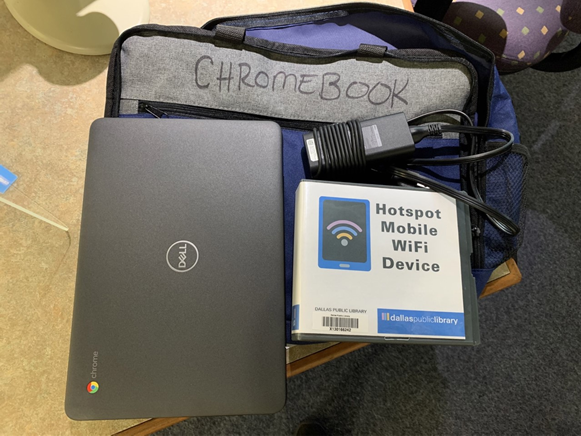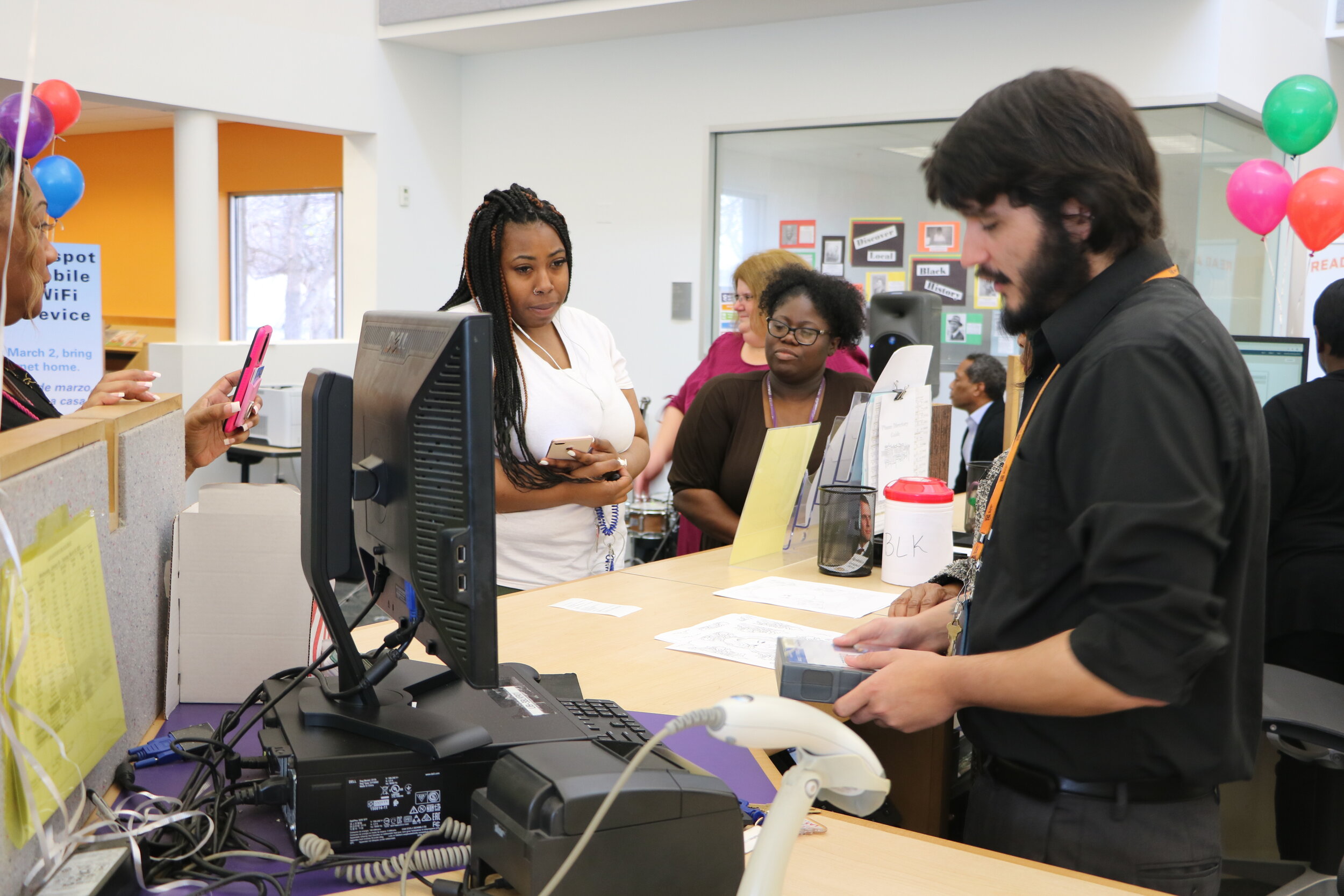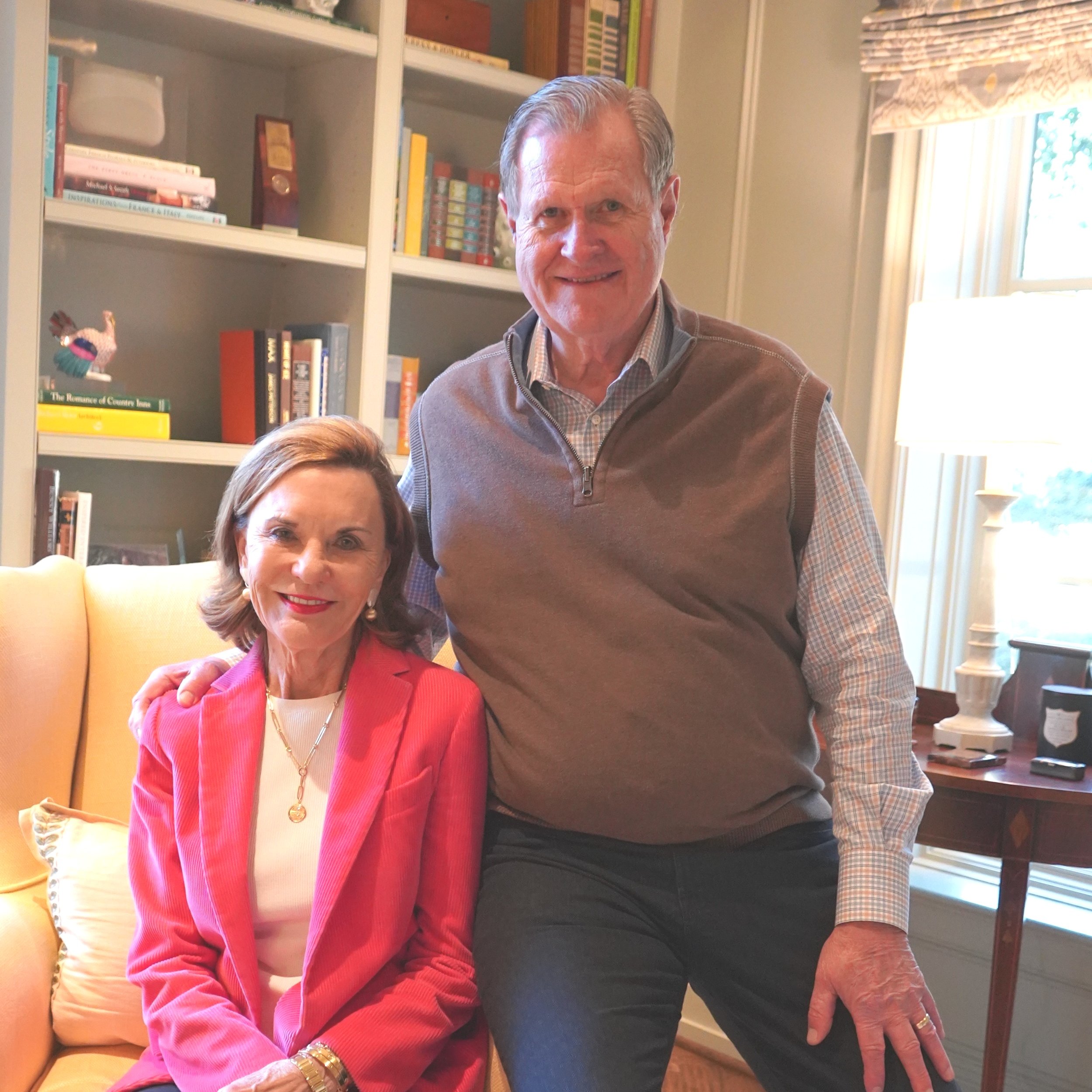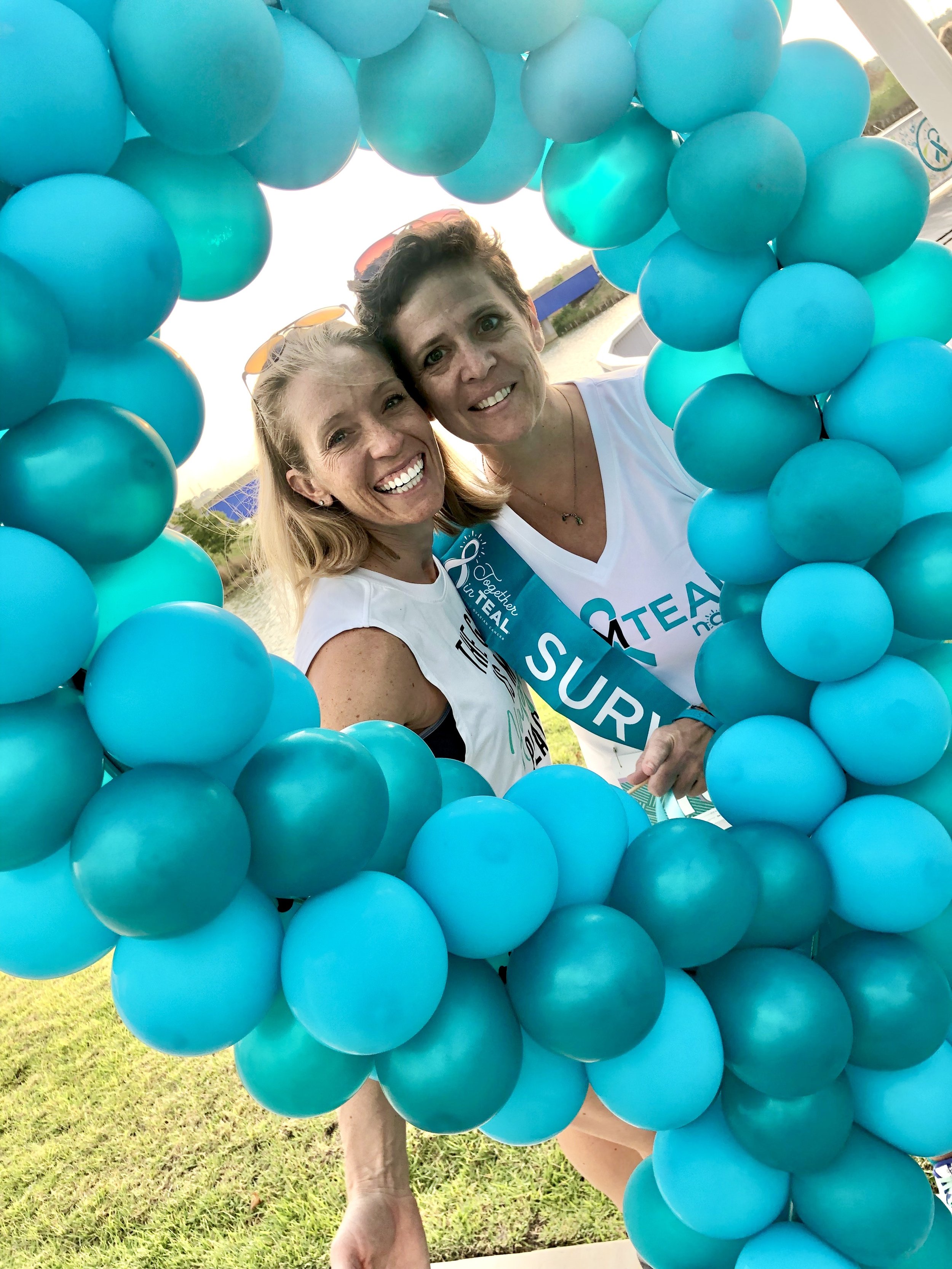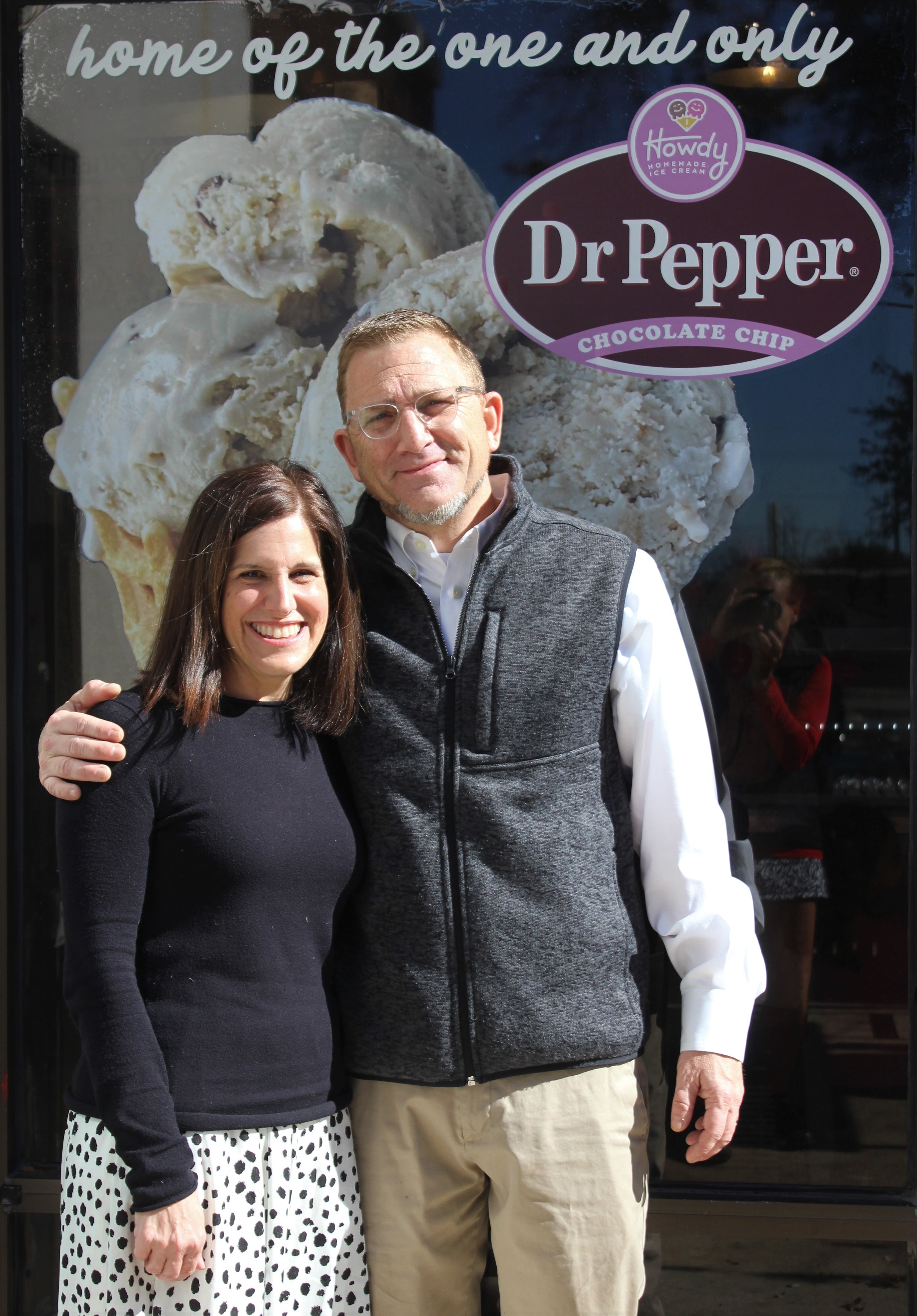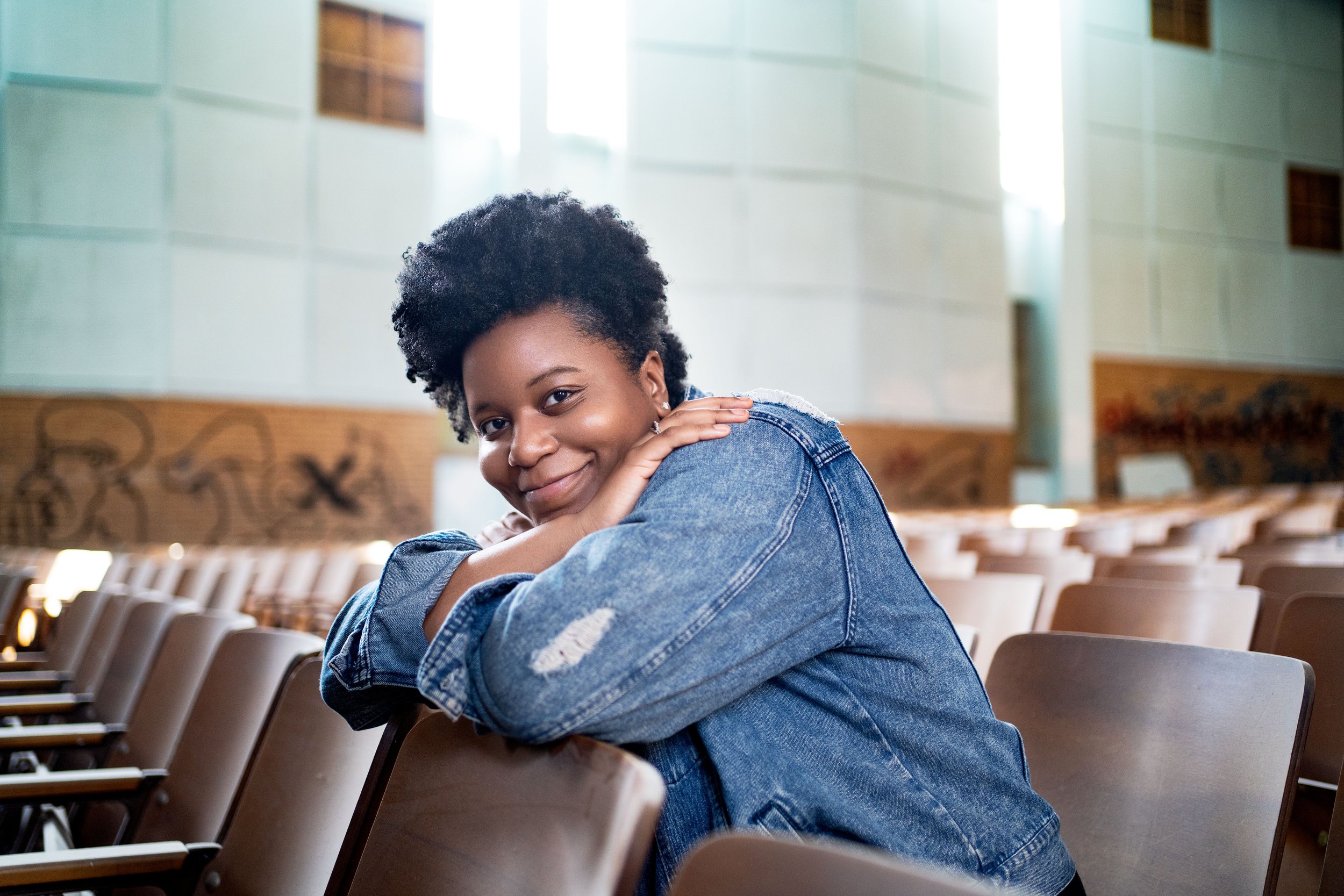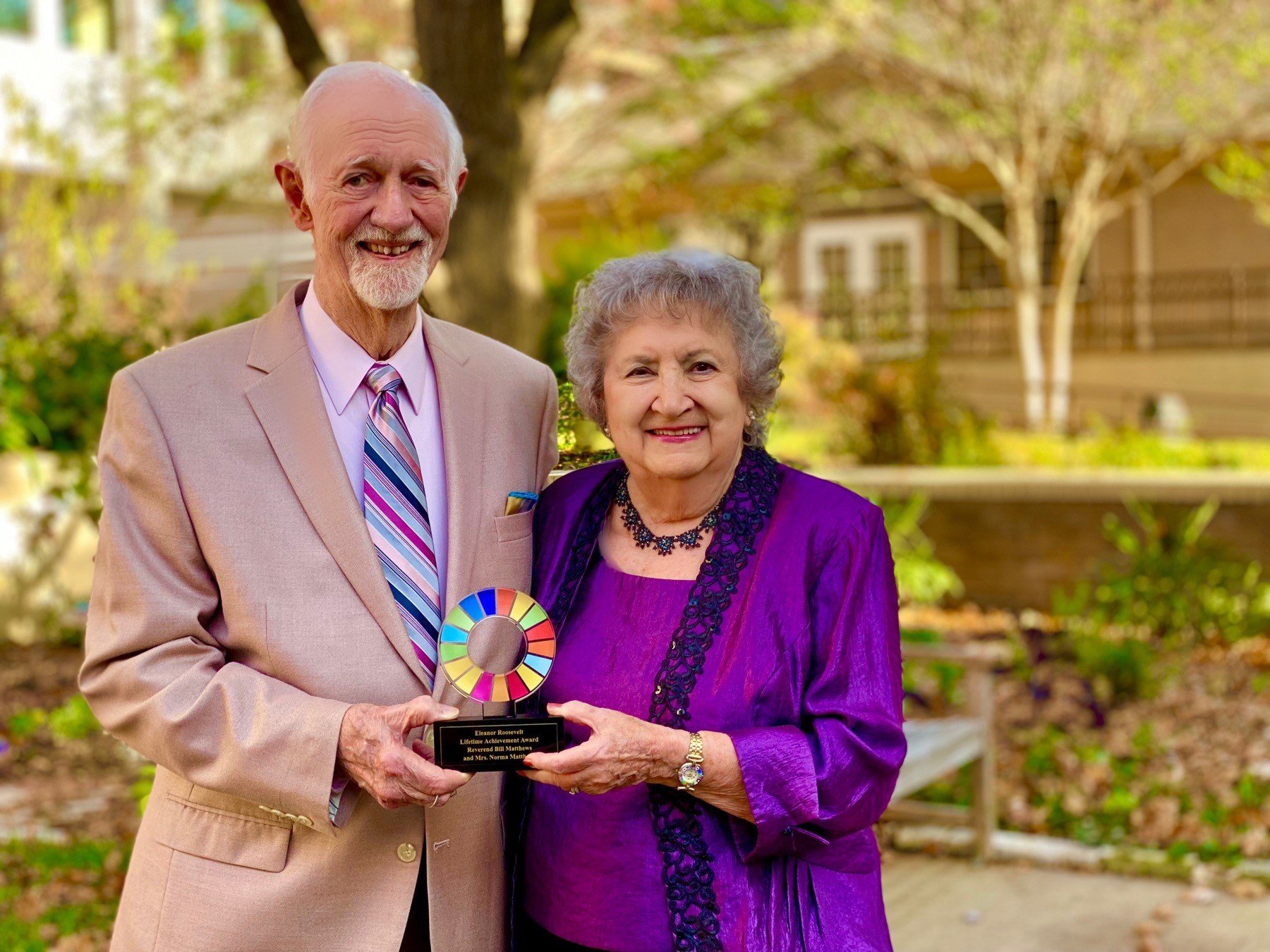Published April 1, 2021 at 5:35pm.
Story by Roselle Tenorio. Photos courtesy of Dallas Public Library.
The Dallas Public Library (DPL) does a lot more for the community than lending books to patrons. It provides the steppingstones to careers and learning, by preparing entrepreneurs to write their first business plan, providing early literacy to prepare little ones for Pre-K, or hosting ESL classes to prepare students for the GED and then community college.
Heather Lowe, Adult Services administrator for DPL, describes public libraries as the “places people go when they do not know where to go.” For example, when applications open on Dallas Housing Authority (DHA), residents go to the library to sign up because they can receive assistance with the forms and access to a computer. Nowadays, everything is online, including “about 80% of job applications, and many of the entry-level jobs where you have to take a screening or personality test online as well,” says Heather. Housing, employment, education—so many of our basic necessities require internet access and computer literacy. That’s why many Dallas residents rely on DPL when they need to use a computer. When Heather gets out of bed in the morning she is reminded of her purpose. She says, “there is something special about going to work at a place where everyone wants to do good and help the community.”

Heather (left) and Leo, a library regular, at a Dallas Public Library Backpack Challenge Giveaway.
Heather is passionate about connecting residents to the internet but also to the crucial computer literacy skills that help people thrive. She fondly remembers being exposed to computers at a young age because her father was an engineer, who worked on some of the first computers for NASA. Her experience helped her recognize the growing importance of access to computers and the internet. She attended the Cranbrook Academy of the Arts, and her first job was in an art library focusing on digitization. When she moved to Dallas, she initially ran the fine arts division of the Dallas Public Library, which gives the public access to dance, music lessons, and performances.
When Heather transitioned to Adult Services Administrator, it was her passion for helping our neighbors experiencing homelessness access services, recreation, and crucial resources like Wi-Fi that motivated her. Heather points out that this demographic is often perceived as a monolith, but if you volunteer with people experiencing homelessness or work to serve them like Heather does, you quickly learn their individual stories. “The only reason any of us have a home is because of a safety net, whether it is family, or health care or other resources,” says Heather. She shared the story of one of her patrons who lost his wife, found the art of sewing through the Fiber Arts Workroom located on the 4th floor of the J. Erik Jonsson Central Library, which soothed his anxiety. He now sells his work to the Stewpot, a nonprofit that provides a safe haven to people experiencing homelessness.
A set of chromebook and hotspot mobile Wi-Fi device available for check-out at the Dallas Public Library.
Many homeless residents come to the library with their smartphones to use the Wi-Fi and connect with family and friends, which Heather describes as a lifeline. Others come to play video games on the computers for a few hours, which may be their only time to exist in a place of refuge as the other parts of the day are focused on survival. Heather describes the library as a place where, “you can exist and no one is going to ask you why you’re there or what you are doing, you don’t have to buy anything, it is climate-controlled, and there is always someone there to answer questions. We don’t have an agenda, we don’t have a quota, we are just here to help people, and that garners trust.”
Unfortunately, many of the in-person programs have been put on hold due to the COVID-19 pandemic. For example, the GED program at the Dallas Public Library leverages public-private partnerships and has been moved completely into the virtual space. Atmos Energy provides scholarships, the library invests long term in the education of participants who may begin with a middle school education, helping them build the confidence they need to help them graduate, and nonprofits like Literacy Achieves, Wilkinson Center, Dallas College, and Aspire (formerly LIFT and Aberg Center for Literacy) partner to reach and serve more participants.
While in-person GED classes are not occurring at the library yet, Dallas residents can still turn to the public library for learning access through hotspot lending. In 2019, the library began planning a rollout of about 100 hotspots, but once the city council received word of the new initiative, they ended up with 900 to distribute equitably across their branches. The libraries began distributing these hotspots two weeks before the pandemic. With the added burden of Wi-Fi access due to the pandemic, DPL administrators worked with the city to secure 2,100 more, with 3,000 total now circulating.
Heather explains how Wi-Fi access disparities stem from redlining, a systematic denial of various services or goods by federal government agencies, local governments, or the private sector due to racism, primarily in the central southern corridor, which includes library branches like Highland Hills, Lancaster-Kiest, Martin Luther King, “You can lay a redline map over a Wi-Fi lack of access and they match up.” Other efforts like working with the city to extend Wi-Fi to parking lots of branch libraries, including Lancaster-Kiest, Prairie Creek, Dallas West, and Highland Hills and a Texas library and archive grant to pair 100 laptops to the hot spots are steps in the right direction of getting our neighbors online now. Heather is fond of the ingenuity in Dallas to make things happen and encourage us all to dream big and remember the community resources we do have so we can leverage even more accessibility. Parks, libraries, nonprofits, are all a part of a network that makes up our society’s safety net and catches us from falling.
To check out a Wi-Fi hotspot, you can request one here, or call the library at 214-670-1740 to connect to your local branch.
Heather says that at the city level, we have enough hotspots to meet the immediate need, but for a long-term and widespread solution, it will take legislation on the national and state level for Wi-Fi to be considered a critical utility. If you are interested in improving broadband access, talk to your representatives at every level. The National Digital Inclusion Alliance is an advocacy and practitioner organization to use as a resource.
More Good Stories
Featured
When Kathy and Larry Helm heard about The Senior Source’s 60th Birthday Diamond Dance-Off, they knew they had to put on their dancing shoes! For the Helms, this event combined two of their passions into one. Celebrating and supporting The Senior Source, a Dallas-area nonprofit that has been serving older adults for 60 years, and dancing together, which they have been doing since they were high school sweethearts. Both Kathy and Larry have chaired the board of directors of The Senior Source and have been proud supporters since 1998. It seemed only fitting they should be voted into the finals to dance on stage at Klyde Warren Park this past summer.
In 2020, more than 912,000 women were diagnosed with some form of cancer in the United States alone. During that same pandemic year, countless medical appointments were canceled while people were social distancing, and yet still each day nearly 2,500 women heard the news, “you have cancer.” There is no doubt that these words can be crushing to hear, but what’s equally crushing is the lack of tangible, encouraging support that exists to help women feel beautiful, strong or “normal” before, during and after cancer treatment.
When Tom Landis opened the doors to Howdy Homemade in 2015, he didn’t have a business plan. He had a people plan. And by creating a space where teens and adults with disabilities can find meaningful employment, he is impacting lives throughout our community and challenging business leaders to become more inclusive in their hiring practices.
Have you ever met someone with great energy and just inspired you to be a better you? Nitashia Johnson is a creator who believes by showing the love and beauty in the world it will be contagious and make an impact. She is an encourager and knows what “never give up” means. Nitashia is a multimedia artist who works in photography, video, visual arts and graphic design. Her spirit for art and teaching is abundant and the city of Dallas is fortunate to have her in the community.
The United Nations Association Dallas Chapter (DUNA) honored Rev. Bill and Norma Matthews for their ongoing commitment, helping advance the United Nations Sustainable Development Goals agenda by promoting peace and well-being.
